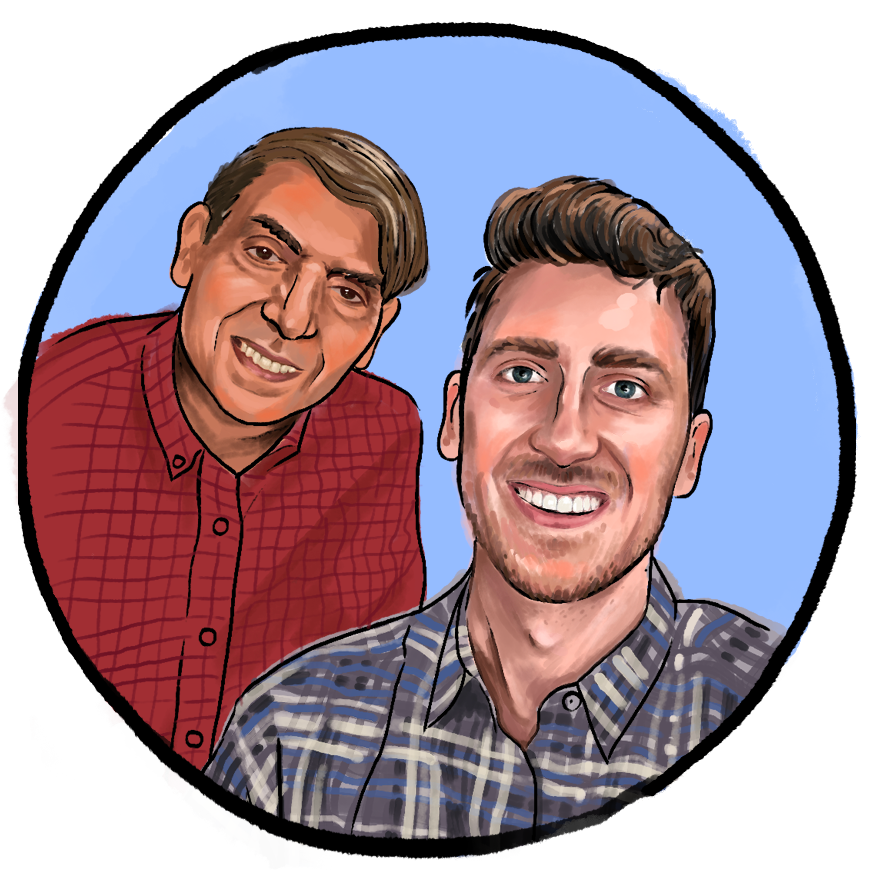There’s a series of television commercials I always look up from my phone to watch.
They’re for Progressive home and auto insurance. I don’t own a home or a car, but I appreciate the cleverness of the ads: As people in their mid-thirties—not much older than me—stand in a group therapy circle or sit at a seminar, an expert trains them not to become their parents. They are taught how to navigate television remotes without frustration, how not to gawk at a man with blue hair at the store.
The commercials strike me because I always think, that will never be me. My dad and I have never had a quintessential American father and son relationship, the kind that Norman Rockwell painted and that I saw all around me growing up in Iowa. We never grilled or watched sports on TV. And there was never a moment where he playfully brushed shaving cream onto the peach fuzz above my lip, guiding me to go against the grain; my mom was the one who taught me to shave.
My Palestinian father came to America from Jordan when he was in his early thirties and, like many Arab Americans, assimilated selectively—embracing coffee and donuts without forfeiting mint tea. Throughout my childhood, his foreignness was not necessarily foreign to me, but there was always something about him that felt out of reach, a whole past in places to which I’d never been. The differences in how my immigrant father experienced Iowa, and America more broadly, created a small but meaningful gap between us, like the two spaces after a typed sentence. I never heard his accent, but our conversations were still riddled with a kind of benign awkwardness akin to when you meet someone for the first time and don’t know if you should hug or shake hands.
In small talk, often catalyzed by learning that my dad is Muslim and that I am gay, people often ask, “Are you and your dad close?” We get along, yeah. I move the conversation forward. On dates, it goes further, “Is he cool with you being gay?” I unpack “cool”; I say, I love him and he loves me, and we both know that. If they want nuance, I tell them I wrote a 3,000-word essay about coming out to him for Hello Mr. magazine once. I’ll send it when I get home, if you want.
The essay is a one act play in which my dad unknowingly stars, although I’m the one driving the story. It follows my years of pontificating about whether or not I should come out to him, my role-playing with a psychologist to prepare, and our eventual conversation, which I recorded with my phone in my pocket so I would remember it forever. To my knowledge, he has never read the essay, and yet, I hand it out to strangers with the nonchalance of a playbill. Here, a brochure on my psyche. And if that’s not right for the moment, I have others: an essay on the cynicism of coming out, videos about coming out to my dad.
It can feel disingenuous. Sometimes, when I write about my relationship with my father, it feels like a literary device that adds conflict, gives me dimension. And I get called out on it. I once wrote an essay that analyzed my relationship to my dad through food. When I posted about it on Instagram, a college friend replied, “Don’t you ever get sick of writing about your dad?” I wrote back curtly, No.
A longer version of that response would be that it’s my story to write, so I’m going to write it. Plus, it was helping people. I would regularly get DMs from queer strangers around the world telling me about the hopelessness they felt or how rare it was to read “Palestinian” and “gay” in the same sentence. I reminded myself of these justifications. But I am still lost in the question.
Is that really why I wrote about us so much?
Last March, as the world started to shut down, I thought of myself first.
I live alone in New York. I’m never in my apartment, and its size reflects that. If the apartment is an envelope, the kitchen is a postage stamp—without drawers large enough even to hold all of my silverware. When the real estate broker first showed me the space, he acknowledged the smallness. “It’s fine,” I moved to the terrace, “I never cook.”
But two days into quarantine, without cabinet space to store all of my newly purchased canned beans, real panic started to set in.
I called my dad to vent, then asked if he was OK. “I have water, and I have dates,” he said. “Bedouins have been living on water and dates for years. Buy dates.”
I laughed. And as I found myself more online in my pandemic-induced spiral, I tweeted what he said. More people liked the tweet than usual; I received a small uptick in Arab followers. I bought dates.
As it became clear that quarantine would be prolonged, my selfishness shifted to worry for my dad, who is in his mid-seventies and was still working as a physician at a time. I called more frequently.
He was buying bagels from Panera several at a time to avoid going out so much. “You know,” I said, “You can freeze them. Put them in a freezer bag and they’ll last a long time.”
“They’ll get icy.”
“Freezer bags are different, they’re special.” I opened my cabinet to check the box color of Ziploc freezer bags in relation to sandwich bags and stopped myself because I knew he wouldn't understand what I meant; I ordered them for him on Amazon.
The conversation was a wake-up call. For whatever reason, I saw my dad’s mortality so starkly through visualizing him toasting a bagel with freezer burn and an empty grocery shelf where the Ziploc bags should be.
Weekly FaceTimes turned daily.
In November 2020, just before the pandemic accelerated again, my youngest sister had an intimate wedding upstate. My dad flew to New York a week after the election and stayed for a month, spending more than two weeks in my one bedroom apartment with the postage-stamp-sized kitchen.
Over the course of those weeks, tweets documenting our Odd Couple-like dynamic poured out of me faster than anything I’ve ever written.
In the morning, I satiated his sweet tooth with the protein waffles and keto syrup I had daily (he never tasted a difference). I topped the dish with chopped-up dates for effect. He watched me prep in silence, pulled up a seat next to me, and half smiled. “Thank you so much.” The real payoff was in his reaction to my sister, which I tweeted:
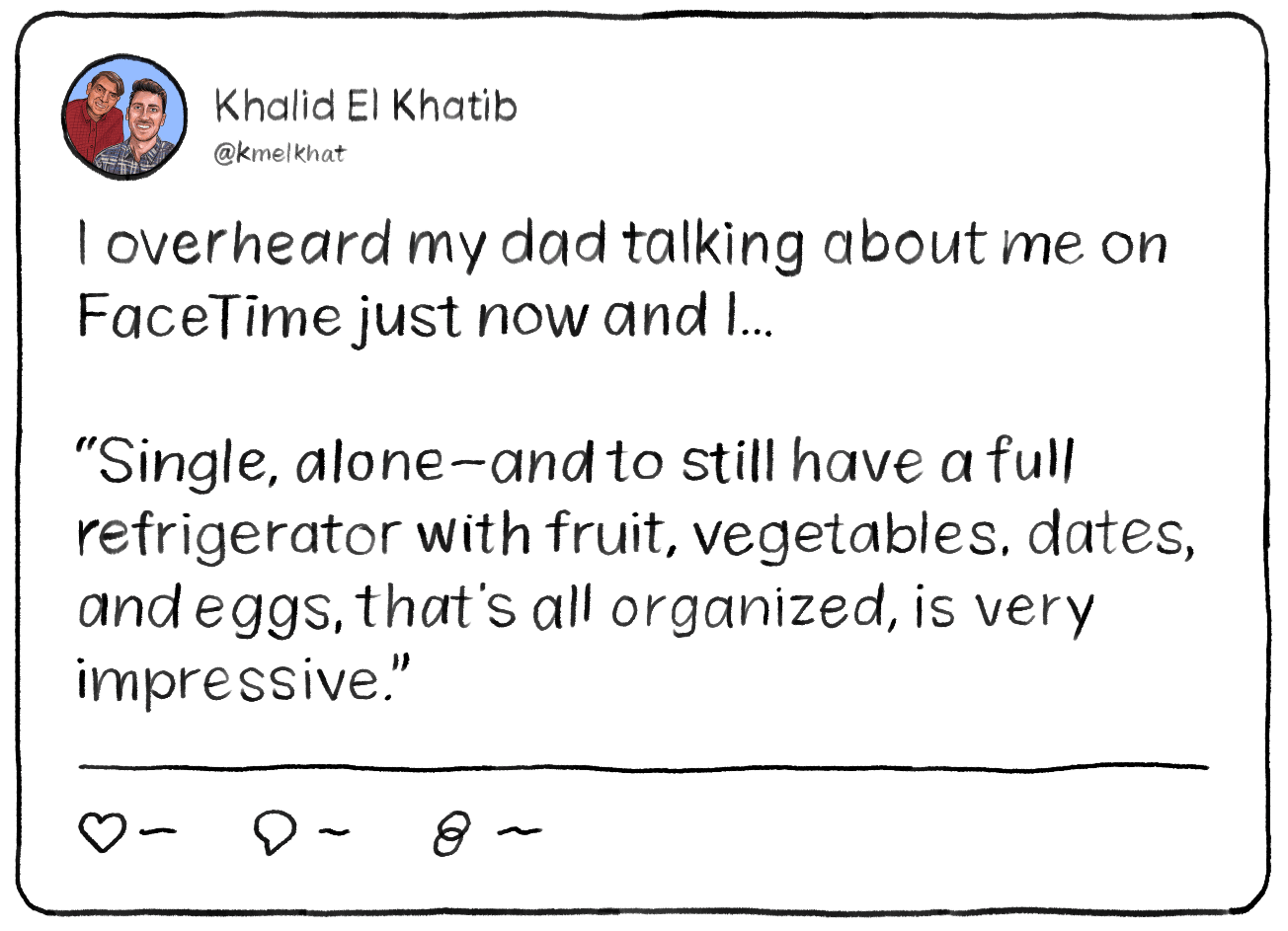
I spent most of my day on work Zooms, rarely putting in my headphones, while my dad sat on the couch three feet away in pajama pants and a white T-shirt playing “word puzzles” on his phone.
I’d break to make lunch for the both of us.
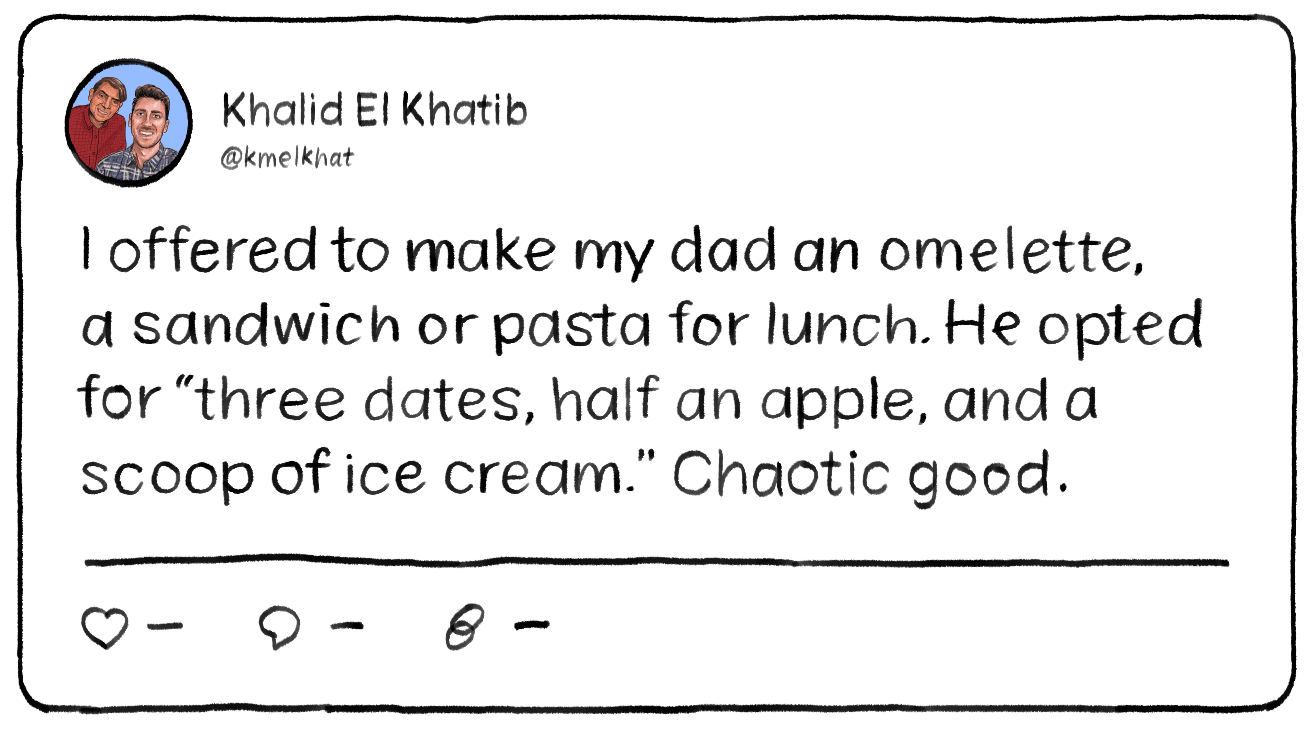
I had to finish work and ensure that dinner was ready in time for the CBS Evening News, which he watched religiously, followed by Jeopardy! I captured this succinctly.
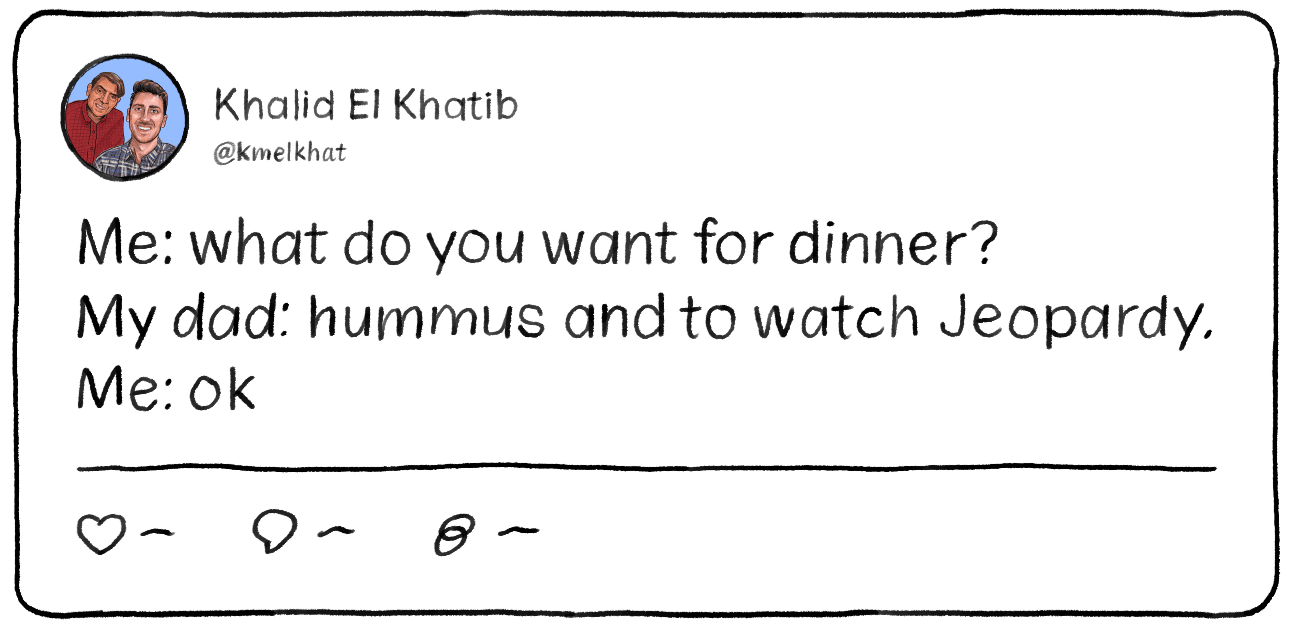
As I did our vibe while we watched:
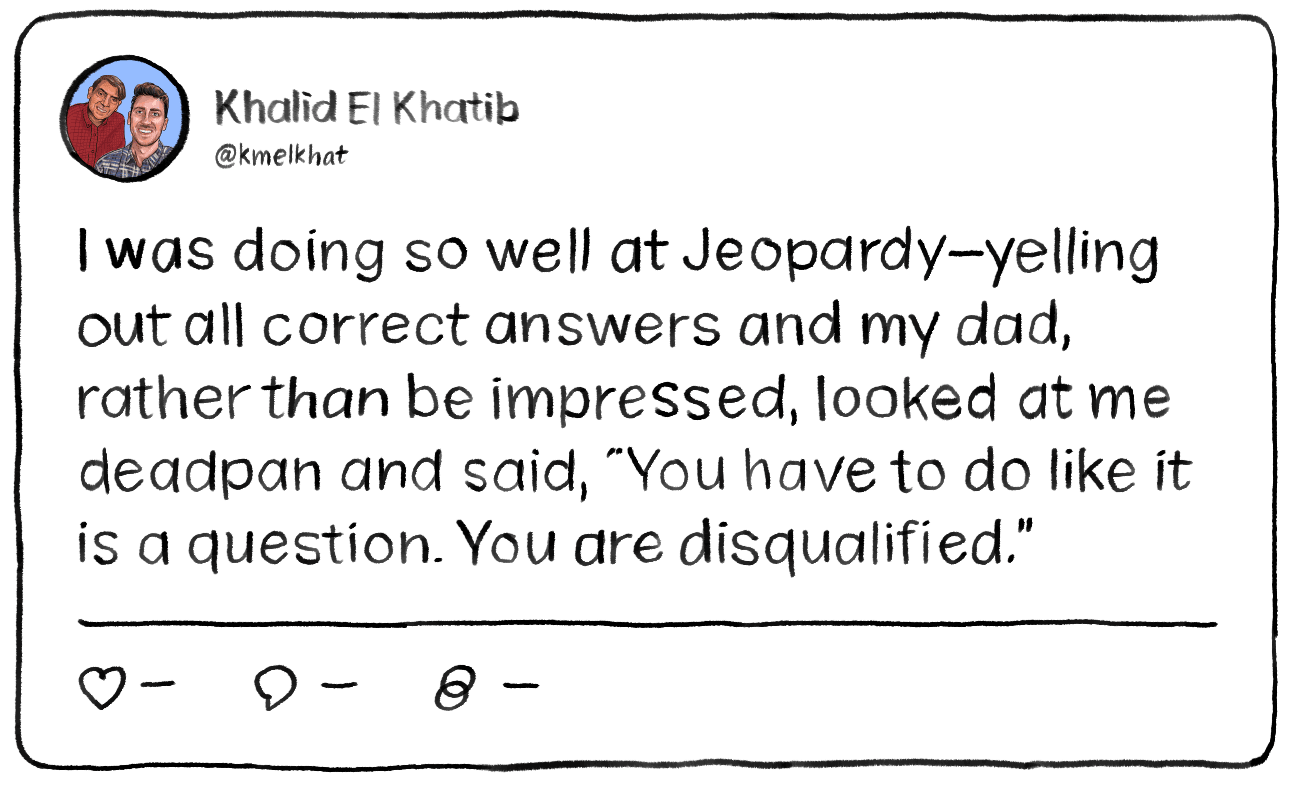
Occasionally, I would break from the routine for an errand or a chore, his observations would be captured:
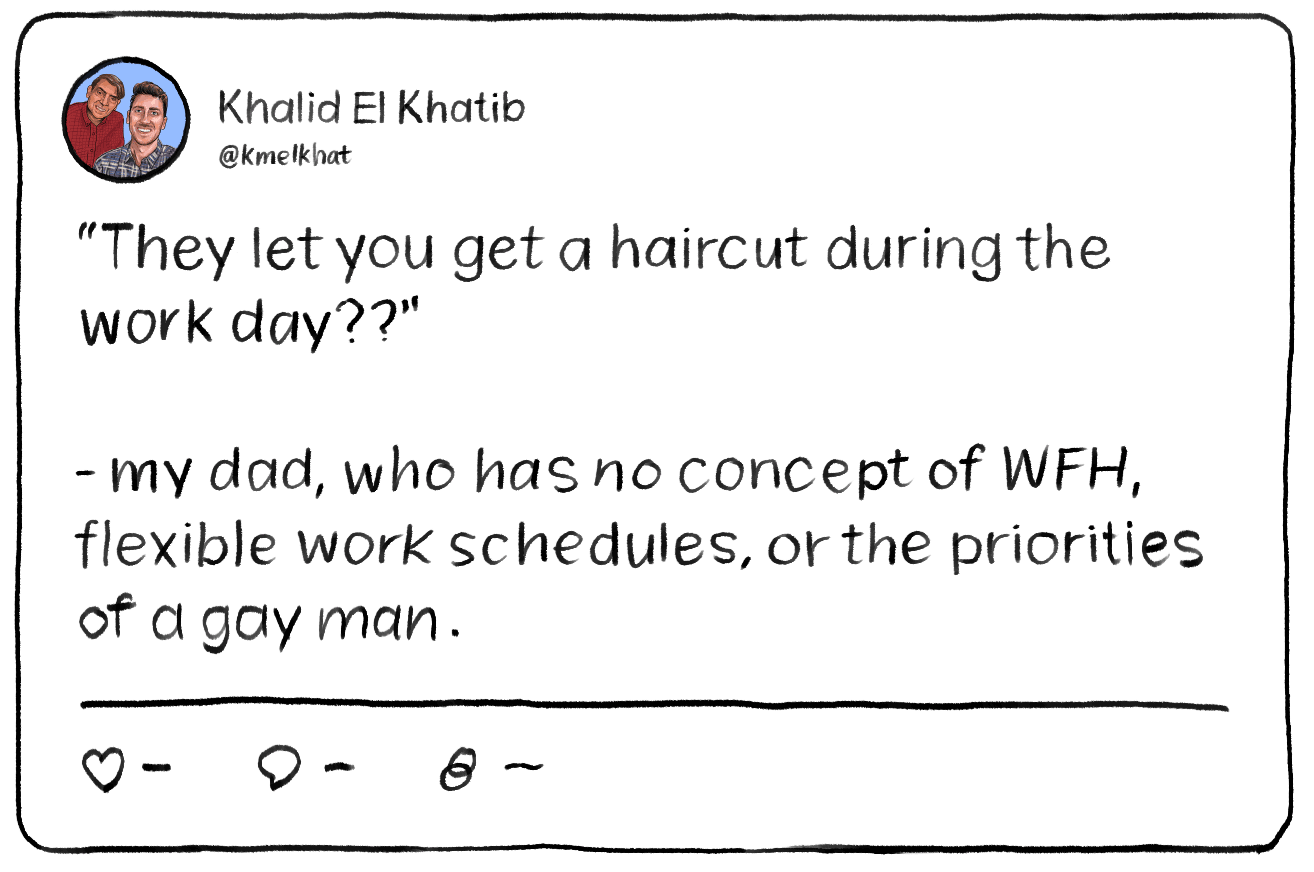
Over the course of the months, he became a main character on my followers’ feed.
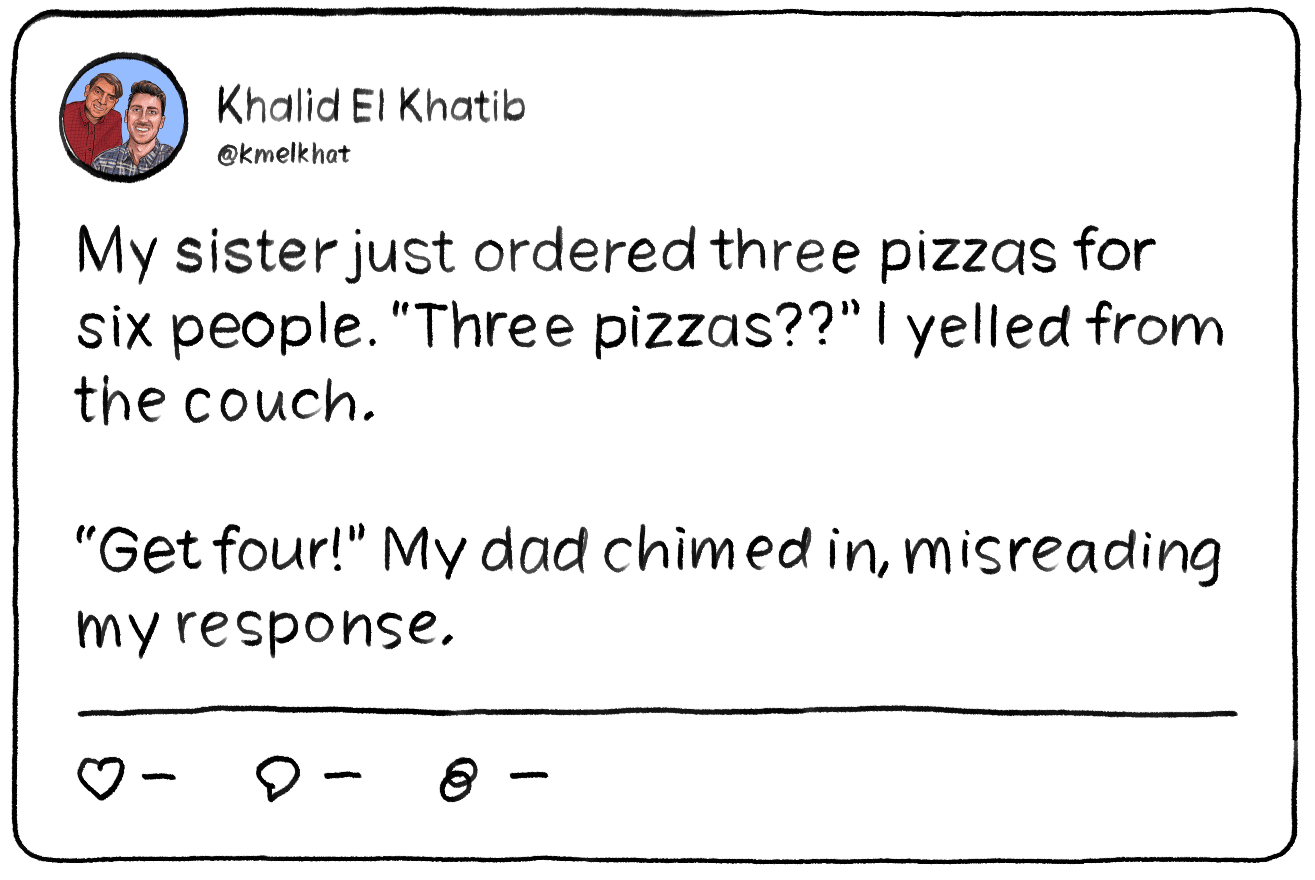
Likes accelerated and the replies to content about him snowballed. To most people, it was endearing. To Arab followers it was relatable—but in a way that was different than my previous writing, where I was so focused on the drama of our relationship that I edited out the mundane details. In those details is where so much of the humanity was.
After my dad left, we fell into talking on the phone almost every night. Occasionally, I’d extract a quote or anecdote for a tweet, like this one posted during a New York blizzard:
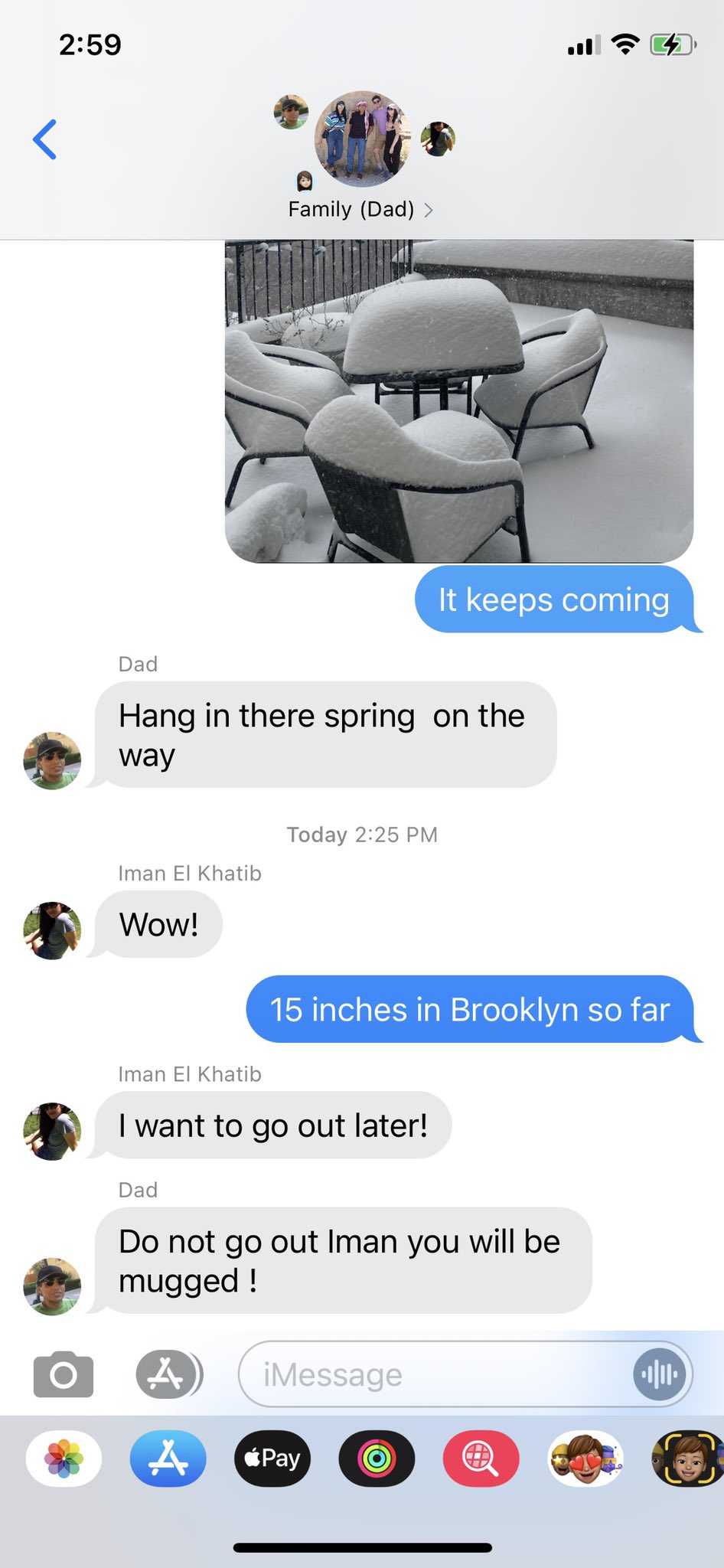
“This is too real,” an Arab follower replied.
Over five years ago, I sat in a publisher’s office and spoke tentatively about writing a memoir.
Towards the end of our conversation, he suggested that, in order to do the story service, I should consider traveling to Syria, where my dad grew up after being displaced from Palestine. Syria has been categorized level 4 “do not travel” by the US State Department since enmeshed in armed conflict starting in 2011.
In the weeks after our meeting, I became obsessed with the publisher’s suggestion. Visiting Syria felt like a necessary step to fill the gap between my dad and I, allowing me to finally understand all the aspects of his past to which I’ve never had access. And in years that followed, I genuinely thought that I was barring myself from that knowledge through my own unwillingness to risk my life on a research trip.
I never considered that there could be as much truth in who my father is today as there is in how he came to be.
That revelation puts new power in my 280-character observations. In searching my handle with “my dad,” I find the tweets to be like Pointillism, each moment or detail succinctly illustrating my father, our relationship, and my love for him. His quotes are stripped of alliteration and simile, freed from context, and unpolished. I read a tweet, I hear him.
The tweets also resurfaced small, buried memories—similar moments from before I had a place to capture them. How he told us over and over how intimidating it was to order fast food in New York when he first moved to America after being ridiculed for pronouncing Whopper as “whooper.” How he taught us the Arabic word for apricot, mushamash, as he pulled the pit from one. Now, it’s a word I hear often, the name of so many bodega cats in Brooklyn.
With all my writing, I was so focused on understanding how my dad grew up, how trauma impacted his ability to emote, and what was transferred to me through genetics or osmosis, that I lost sight of us every day.
I’m proud of the coming out essays I’ve written and the ways they’ve helped people, but I feel so much clarity from a few dozen tweets based around two people living together after being isolated apart.
I always try to reply to DMs I get from other Arabs who are struggling to relate to their fathers. I tell them about empathy and survival, and I will continue to do so. But also, after the loneliest year, I’ll add: make breakfast for your dad, watch Jeopardy! with him, sit there in silence. See what happens.





